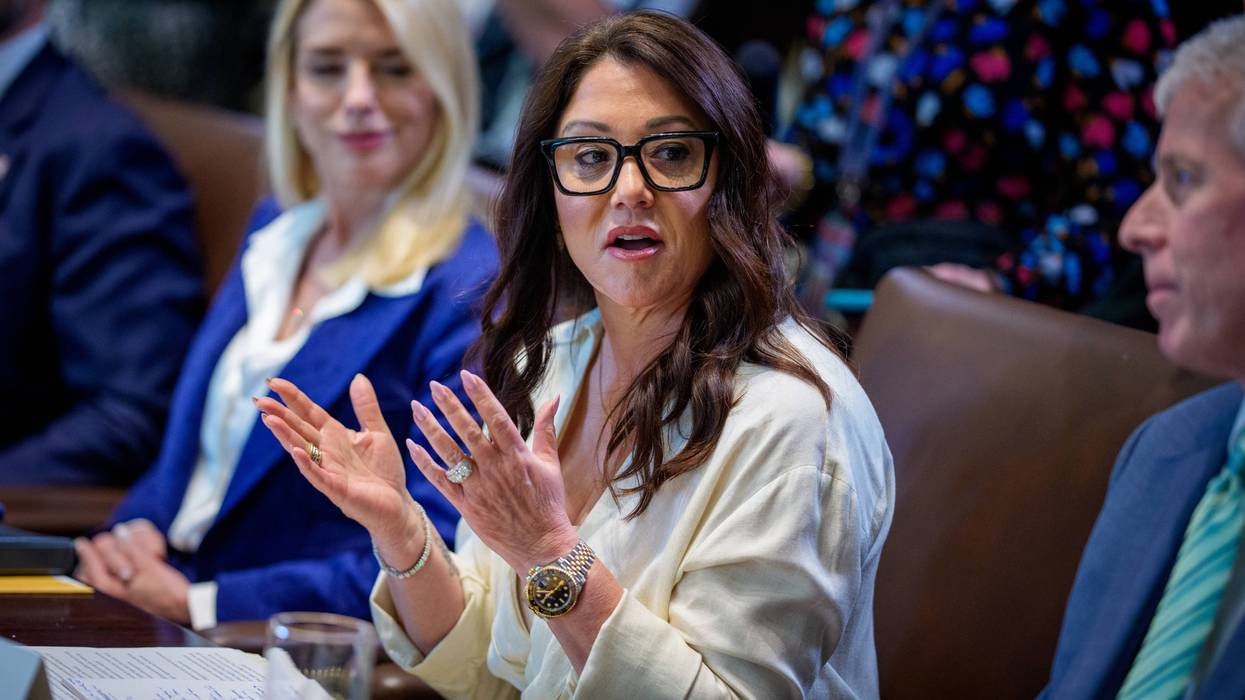A high-stakes standoff continues today in Cairo.
On New Year's Eve -- shortly after the Egyptian government had prevented buses from taking them to Gaza -- hundreds of people, including scores from the U.S., who were attempting to march in Cairo were kicked, punched and dragged into a holding area by plainclothes Egyptian government forces.
See video (filmed by Sam Husseini).
Beginning Dec. 27, 1,300 activists from over 40 countries had been in Cairo attempting to go to Gaza, which has been under siege. Israel has prevented free movement to or from Gaza on its border crossings and has prevented the Gaza port and airport from functioning.
These 1,300 activists -- roughly equal to the number of Palestinians killed in Gaza during the Israeli bombing "Cast Lead" of this time last year (about 13 Israelis were also killed) -- have been prevented by the Egyptian government from going to Gaza through the Rafah crossing in the south of Gaza.
Protests in Cairo have been ongoing; one took place Monday in front of the Prosecutor's Office, roughly the equivalent of the Justice Department. This protest included about 40 Egyptians and 40 internationals. On New Year's Day, several hundred people protested in front of the Israeli embassy in Cairo; protests there are virtually unheard of -- prohibited by the Egyptian authorities. During protests, people have almost always been penned into areas to prevent their being seen by the general public.
The following individuals still in Cairo can speak to the violence of the Egyptian authorities as well as the Egyptian policy of maintaining the siege of Gaza and the crisis situation in Gaza:
RYAN FAY
Fay, a law student, has done legal work on behalf of Palestinians on the West Bank, attempting to prevent the demolition of their homes by Israel. See a photo of Fay shortly after being hit with a police walkie talkie.
MICK NAPIER
Napier is chair of the Scottish Palestine Solidarity Campaign, one of hundreds of organizations with delegations in Cairo. He said, "It is clearer than ever that the Egyptian dictatorship is fully complicit with Israel's crippling siege of Gaza."
HEDY EPSTEIN
Epstein is a survivor of the Nazi Holocaust and author of Remembering Is Not Enough. See the AFP piece "Awaiting Gaza March, Holocaust Survivor Stages Hunger Strike."
SAM HUSSEINI
Communications director of the Institute for Public Accuracy, Husseini has been blogging and posting videos.
MICHAEL BROWN
Brown is former executive director of Partners for Peace. He is accompanied by his 80-year-old father Edwin L. Brown, professor emeritus at the University of North Carolina at Chapel Hill in the classics department.
See video of the elder Mr. Brown being thrown to the ground and shoved into a penned-in area. He later reported sustaining a bruise on his hand, which he still has, and being pulled on by a cord around his neck. In the video "Demonstrators being forcibly ejected from the street," Edwin Brown is wearing a blue hat (video by Kayvan Farchadi). Michael Brown was kicked in the ribs by plainclothes Egyptian forces; he and others witnessed Egyptian government forces pulling women by the hair.
The Browns were also penned in on Dec. 29 for over four hours while attempting to visit the U.S. embassy.
EMILY RATNER
Ratner was in Gaza in June, but she was turned away from entering Gaza this weekend by Egyptian officials. She recently wrote the piece "Freedom Marching in Circles While Winding Our Way to Gaza."




